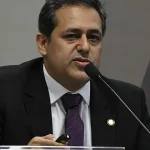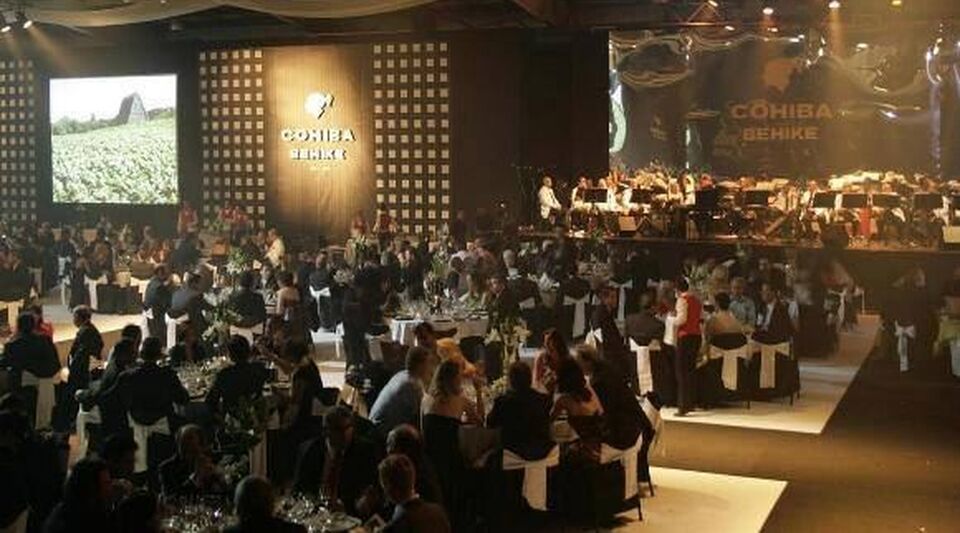▲ In June 2020, the Vienna Philharmonic Orchestra performed in front of 100 guests, as it was the maximum that was allowed.Xinhua Photo
charles paul
Newspaper La Jornada
Thursday March 2, 2023, p. 4
The impact for the performing arts, since the first case of covid-19 was registered in Mexico three years ago, it was devastating for the creators
who, in that period, were forced to implement alternatives that radically changed, at the time, the very essence of the theatrical event, having to transfer their offer to digital or virtual platforms.
So far, there is no one among independent theatrical producers and commercials who has compiled a hard data statistic about the economic losses or the impact of the pandemic on the performing arts, but we all agree that the situation was terrible for the entire sector
said to the day Samuel Sosa, president of the College of Theater Producers.
Now we have to overcome that series of vicissitudes that companies from all over the country went through, since “theatres were practically closed for two years, and in the post-pandemic, opening from time to time, when the green or yellow sanitary traffic lights allowed it.
We are back with activities at one hundred percent, but what we see is that the economy of the theater community is still very affected, there is not enough money for the production. At the beginning of 2022 there was a spike in public attendance, we did well at the box office as people were very eager to go out, but now it has paused again
.
As a consequence of those two years in which there was no theatrical billboard now there is a scheduling lag
Sosa explained, Well, after all, Mexico City has a finite number of theaters and seats, and the year has no more days, so now that we return to the so-called new normality, the theaters dedicated themselves to rescheduling the works that were suspended. There are works that were announced since before the pandemic, now the theaters have become a kind of funnel to give an outlet for everything that was left behind
.
Regarding virtual scenic expressions, Sosa says, They were very laudable efforts to avoid being left without doing anything, it was quite a challenge to articulate a work from the confinement, that left us with a very interesting technical-creative learning. However, for the moment, I don’t think that this is going to be an important engine of economy for the scenic creators of the country.
.
The theater via streaming, continued Sosa, it was an equally interesting moment on a global level. It allowed us to appreciate English, French, Spanish or Argentine theater, and we could share the well-done jobs that were done here with other latitudes. Which seems to me a positive aspect”.
Added to that, the notion that the theater is ephemeral was upset and revalued. The various audiovisual records were left for posterity as objects of study. The lesson is that there should be more and better records of works well done, since it would have been very cool to have had documents of productions by Ludwik Margules or Julio Castillo, which were iconic
.
Regarding the attendance of only 30 percent of the public in theaters for health security reasons, the theater community It is very poorly legally regulated as a cultural sector
Sosa considered.
The point is that “theatrical shows are governed by the same laws as all live shows, which is why they imposed the same restrictions on theaters as on Formula One, soccer matches or massive concerts. Hence, for example, the same logic was applied to a theater with a capacity for 80 people, as a mega-concert at the Foro Sol.
The problem is that in the law there is no distinction in this regard, and there should be its own legislation for the theater, which distinguishes them from mass shows, since their economies are different. There must be legislation that is logical and consistent with the size of the sector
highlighted the producer.
Today, although certain vicissitudes are being traced, concluded Samuel Sosa, There is still precariousness in the theater field, once again we saw that no one had health insurance, a struggle that has been going on for years, that no one had enough savings to sustain themselves during the pandemic, we realized that we were living from day to day. This has left us with a very important reflection, that we can no longer continue doing certain things in the same way. I feel that now there is more awareness to change many ways about how we operate and produce
.
















